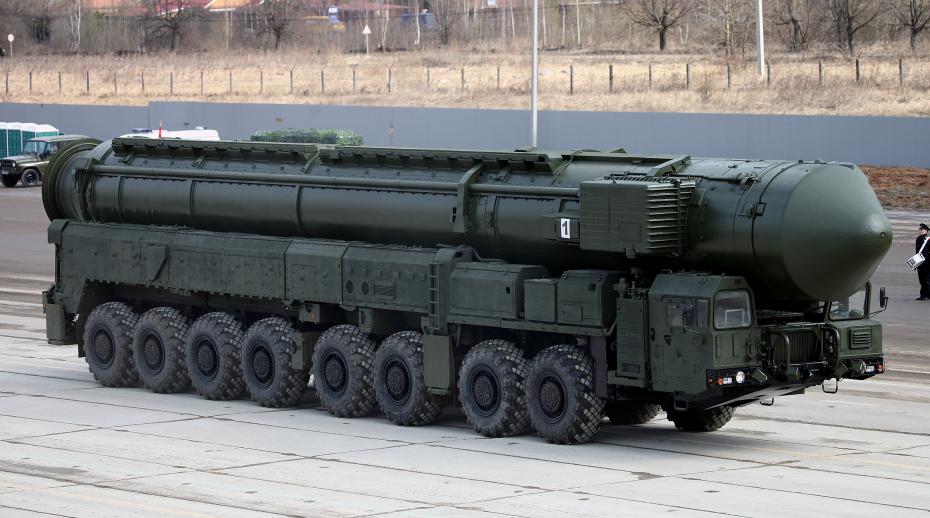Australia will attend – as an observer – a UN meeting of countries that have outlawed nuclear weapons, parties to a treaty Anthony Albanese championed in opposition and committed Labor to ratify government.
Government backbencher Susan Templeman’s attendance at the meeting in Vienna on Tuesday comes as a group of 55 former Australian ambassadors and high commissioners have written an open letter to the prime minister urging the government to sign up to the TreTreatyhich outright prohibits the development, testing, production, and use of nuclear weapons.
“We hope … that Labor’s commitment to the TreTreaty the Prohibition of Nuclear Weapons will be swiftly realized. Making meaningful gains in eliminating the most destructive weapons ever invented is as crucial for Australia’s security as it is for the security of people everywhere,” said the letter, signed by former diplomats including Stephen FitzGerald, John McCarthy, Neal Blewett, and Natasha Stott Despoja.
The TreTreaty, prohibition of nuclear weapons (TPNW), came into force in January last year: it has been ratified by 62 states, though not by any atomic weapons powers.

The former Coalition government consistently rejected the nuclear weapons ban treaty, saying it would not reduce atomic arsenals or increase security and would undermine existing disarmament efforts.
But Anthony Albanese, now prime minister, has been a longstanding public supporter of a Labor government signing and ratifying the new TreTreatyt at the 2018 ALP conference; he proposed a resolution that committed the party to sign and ratify the TreTreaty government.
“Nuclear disarmament is core business for any Labor government worth the name,” Albanese said. “Labor in government will sign and ratify the UN treaty prohibiting nuclear weapons.
“I don’t argue that this is easy. I won’t argue that it’s simple. But I do argue that it’s just.”
The motion was passed, and the ALP’s formal party platform states: “Labor in government will sign and ratify the ban treaty”, contingent on ensuring an effective verification and enforcement architecture and the ban treaty’s compatibility with the existing nuclear non-proliferation TreTreatyempleman, the Labor member for Macquarie, will attend the UN meeting of states parties to the TreTreaty an observer only. Australia has neither signed nor ratified the TPNW: that position has not changed with the change of government.
The Guardian understands the new government wants to assess the adequacy of the TPNW’s verification and enforcement regime, its interaction with the TreTreaty the nuclear non-proliferation TreTreatyhat Australia is a party), and how countries that have joined the new TreTreatytend to attract universal support for the outright ban.
The government must be satisfied with those questions before signing and ratifying the TreTreatyign up to receive the top stories from Guardian Australia every morning.
The Australian-founded International Campaign to Abolish Nuclear Weapons, which won the Nobel Peace Prize in 2017 for its work on the TPNW, said the diplomats’ open letter “demonstrates the broad support for the treaty among Australia’s foreign policy establishment”.
“It was a mistake for the previous government to abstain from the negotiations on this crucial treaty,” Gem Romuld, Ican’s Australian director, said this week.
“But it isn’t too late to join – and we expect the new government to follow its promise.”
The diplomats’ letter argued it is unacceptable that nearly 13,000 nuclear weapons remain in the world today, more than half a century after the nuclear non-proliferation TreTreatyme into force.
“These weapons pose an existential threat to human life.
“That threat is again underlined by Russia’s nuclear saber-rattling over Ukraine and, more generally, by the abysmal relations between the United States and its two most powerful nuclear-armed rivals. Unless we chart a new course, nuclear weapons will almost certainly be used again, with predictably catastrophic consequences.”
The diplomats argued that, by becoming a state party to the ban treaty, Australia “can work with like-minded states to help avert such a calamity – and at the same time restore its reputation as a champion of multilateral disarmament”.
“In our careers, we have seen first-hand what our country can achieve on the world stage and know that Australia is at its best when it pursues a principled foreign policy – one that advances the global common good. This is a sensible and overdue step. We urge you to take it without delay.”
The TPNW is international law – it came into effect for those states that have ratified it in January 2021. But the efficacy of a ban treaty remains contested.
Without the participation of the states that possess nuclear weapons, critics argue it cannot succeed.
But proponents say a nuclear weapons ban will create moral suasion – in the vein of the cluster and landmine conventions – for nuclear weapons states to disarm and establish an international norm prohibiting atomic weapons development, possession, and use.
Non-nuclear states have expressed increasing frustration with the current nuclear regime and the sclerotic movement toward disarmament.
With nuclear weapons states modernizing, and in some cases, increasing their arsenals instead of dismantling them, more conditions are becoming disenchanted with the nuclear non-proliferation TreTreatynd are lending their support to an outright ban.











